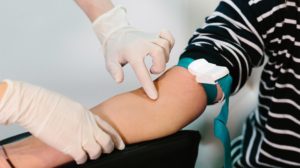 The A1c screening is used to diagnose diabetes as well as to monitor how well current diabetes management interventions are working.
The A1c screening is used to diagnose diabetes as well as to monitor how well current diabetes management interventions are working.
Diabetes
Diabetes is characterized by elevated levels of glucose (sugar) in the blood. If left undetected and untreated, it can quickly lead to heart disease, stroke, kidney damage (leading to renal failure requiring a kidney transplant or dialysis), eye damage, and nerve damage (leading to non-healing wounds, infection, gangrene, and amputation). It can also lead to a serious condition known as diabetic ketoacidosis. This condition requires immediate lifesaving medical attention. According to the Center for Disease Control’s 2020 National Diabetes Statistics Report, 34.2 million Americans have diabetes (10.5% of the US population), and an estimated 7.3 million of these are undiagnosed (21.4%). Early diagnosis and treatment are extremely important in avoiding the above-mentioned medical problems.
Insulin
Insulin is a hormone produced by the pancreas that is responsible for transporting glucose out of the blood, and into the cells where it can be used for energy. In diabetes, either there is a problem with insulin production (this is known as type 1 diabetes and accounts for approximately 5-10% of cases) or, there is a problem with the insulin getting into the cells (known as insulin resistance). This is known as type 2 diabetes, and accounts for approximately 95% of cases.
Signs & Symptoms of Diabetes
- Increased thirst
- Frequent urination
- Blurred vision
- Unexplained weight loss
- Extreme hunger
- Fatigue
- Irritability
- Slow-healing sores or cuts.
- Itchy skin
- Frequent yeast infections.
- Numbness and tingling of the hands and feet.
- Decreased vision.
It is important to note that there are often no symptoms in the early stages of diabetes, but that damage is still occurring.
Diabetes Risk Factors
Those found to be at greatest risk are generally:
- Overweight/obese (this is the greatest risk factor)
- 45 years of age or older
- Have a family member with type 2 diabetes
- Are physically active less than 3 times a week
- Have ever had gestational diabetes (diabetes during pregnancy)
- Are African American, Hispanic/Latino American, American Indian, or Alaska Native (diabetes can affect any race/ethnicity but the above group is particularly vulnerable).
A1c Screening & What to Expect
The good news is that your A1c screening consists of a simple finger stick blood test. Your A1C level will provide information about your average blood glucose levels over the past 2-3 months. A1C test results are reported as a percentage. The higher the percentage, the higher your blood sugar levels over the past 2-3 months. An A1C level of 6.5% or higher indicates your levels were in the diabetic range and would likely result in a type 2 diabetes diagnosis. Your test results will be sent to you. Please be sure to share them with your primary care physician.
If your test results in a diabetes diagnosis (per your primary physician), you can expect your physician to recommend the following:
- Lifestyle changes (especially regarding diet and exercise)
- Expect to begin monitoring your blood glucose levels. This is done at home using a device known as a glucometer.
- You can also expect to be prescribed oral diabetes medications, or insulin, which must be injected, or both
- You will also receive teaching/instruction regarding diabetes and diabetes management. This step is extremely important in avoiding/minimizing the organ and tissue damage that occurs as a result of elevated blood glucose levels.
If you are experiencing any of the above symptoms, or possess any of the above-mentioned risk factors, please have your screening done as soon as possible.
